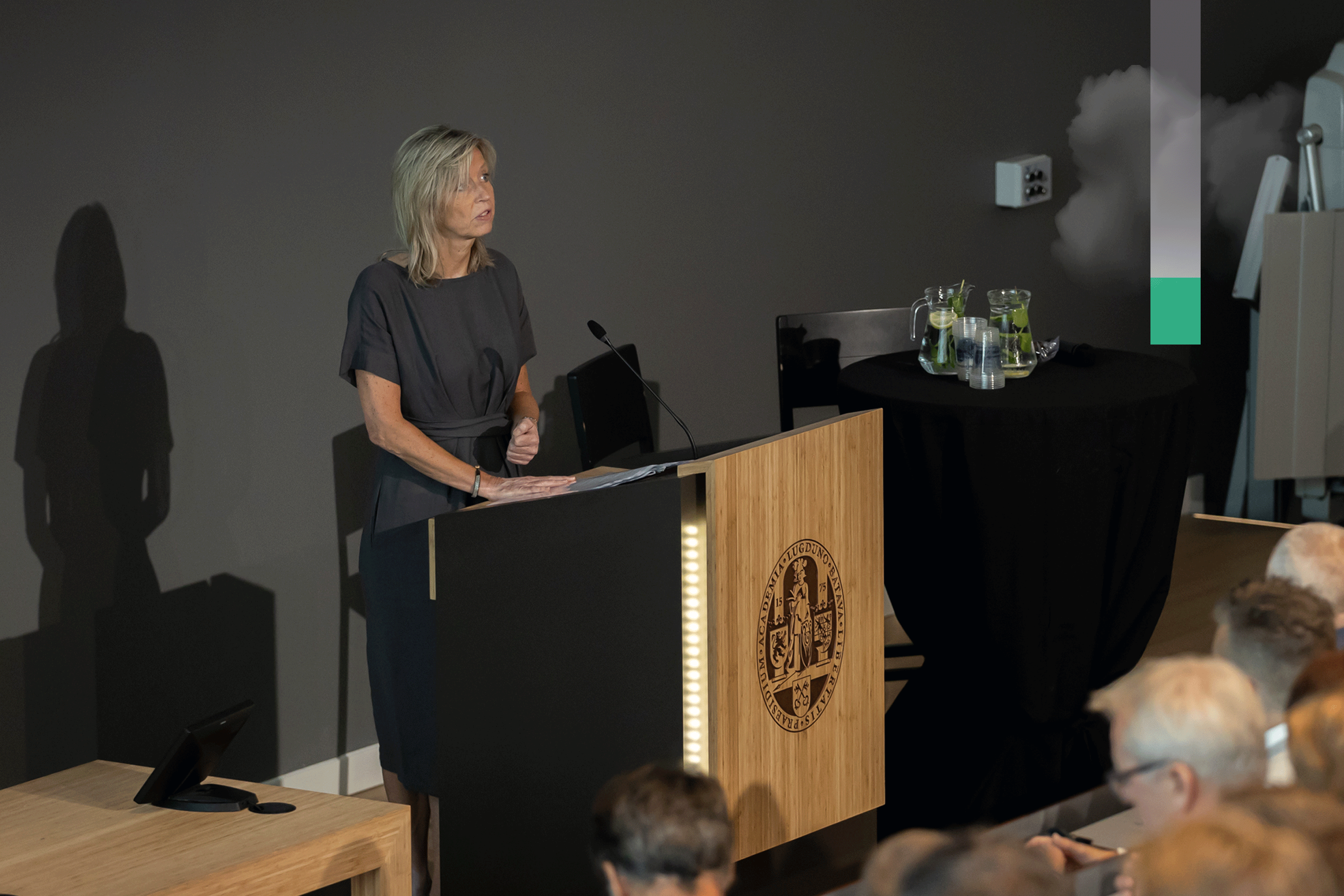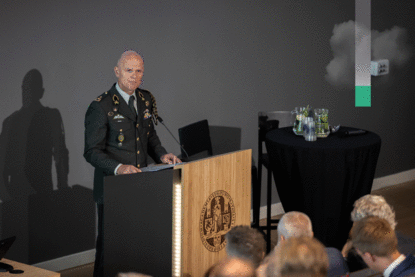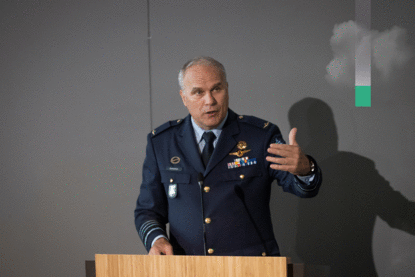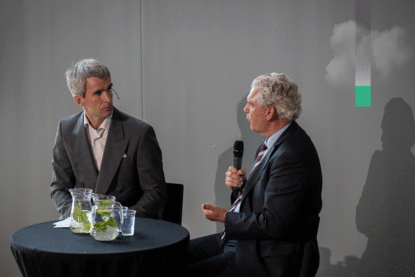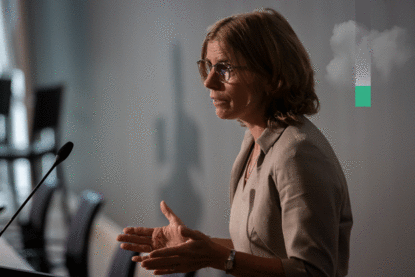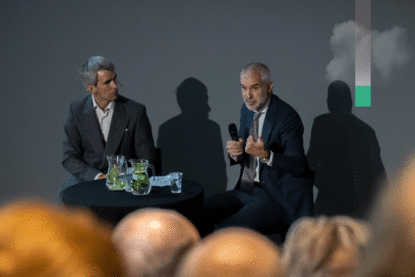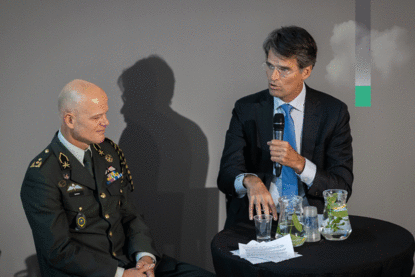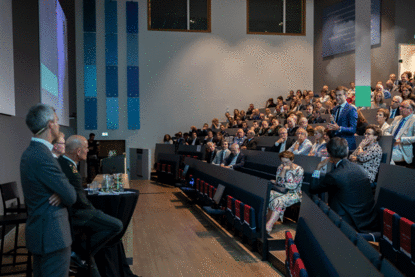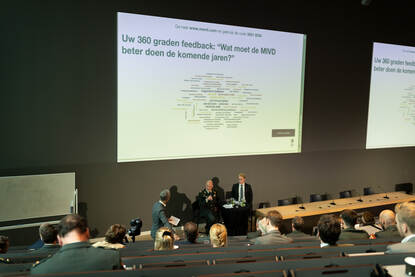‘Intelligence provides a comprehensive picture, insight and the ability to act’
These were the words used by Minister of Defence Kajsa Ollongren to express her appreciation for the work conducted by the Netherlands Defence Intelligence and Security Service (DISS). She emphasised that DISS is absolutely crucial to gaining and maintaining an insight into the intelligence contest, particularly given the rapid technological evolution of the Chinese army.
The Defence Minister kicked off her address with the Russian invasion of Ukraine and its repercussions for our security situation. ‘It demonstrates that military threats can erupt into brutal violence, even on the European continent’, she told her audience. ‘This war is not just about Ukraine. Shared values in Europe and the international rule of law are at stake. This shows us that Europe must strengthen its security architecture. We require strong armed forces to protect our freedom, our security and our way of life.’
Fog of War 2.0
The Defence Minister then referred to military strategist Carl von Clausewitz, who said that war is wrapped in a fog of uncertainty and requires the ability to penetrate the fog and distil the truth. ‘We are being confronted with a 21st-century fog of war’, she said. ‘The 19th century gunsmoke of Von Clausewitz’s era has given way to a virulent digital smog. We need to penetrate this smog, and intelligence will provide a comprehensive picture, insight and the ability to act.’
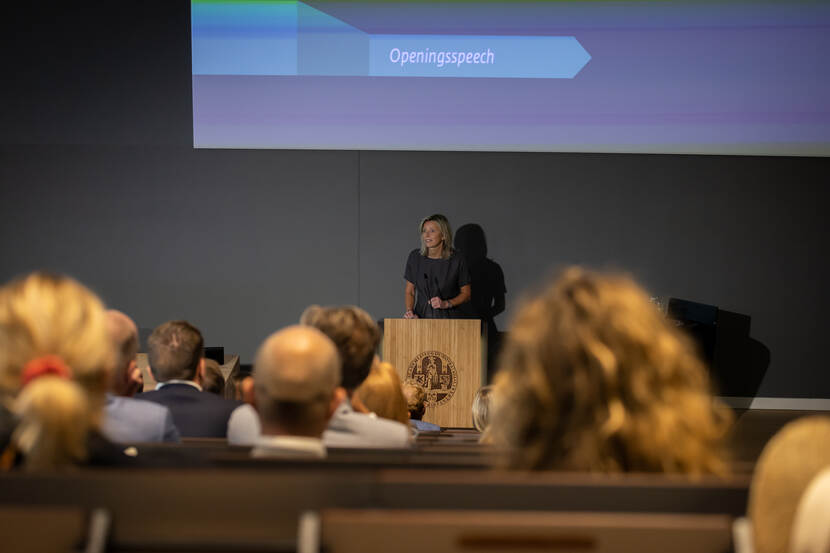
Hostile hackers move very rapidly in virtual environments, going from server to server and from one country to the next, constantly changing their attack methods and the technology they use.’
Concerning developments
The minister urged her audience to consider not only the Russian Federation, but the entire range of threats. For example, she is concerned about developments in China. ‘China has publicly stated its ambition to become a military world player by 2030. Today I can confirm that in the next 15 years the Chinese army will probably have AI-based operational weapons systems at its disposal that are capable of operating fully autonomously, with no human intervention, in all domains. China is well on its way to surpassing us in terms of technology. She also mentioned the militarisation of space and the fact that a scarcity of raw materials and the effects of climate change are causing conflicts and that we are under attack in cyberspace every day. ‘Hostile hackers move very rapidly in virtual environments, going from server to server and from one country to the next, constantly changing their attack methods and the technology they use. In this ongoing intelligence contest it is up to DISS to gain and maintain insight.’
Successes
The Defence Minister concluded by listing some of DISS’s successes, including its exposure of the hacking attempt at the Organisation for the Prevention of Chemical Weapons (OPCW), its discovery of a Russian botnet, and its expulsion of 17 Russian intelligence officers who had been conducting a range of espionage activities under diplomatic cover. She emphasised that these successes were made possible thanks primarily to the hard work and enormous dedication of DISS's employees. ‘I have noticed that the work carried out by DISS is highly appreciated by our partners and allies, both at home and abroad. Success always begins and ends with the people who do the work. At DISS, these are the military and civilian personnel who work side by side. Together they have transformed the service into an operational organisation with added value.’ She asked the audience for an applause and spoke directly to the DISS personnel who were present. ‘The results of your work are crucial to the protection of the armed forces and our military personnel, and to the growing resilience of our companies, universities and society. Your work matters, every single day.’
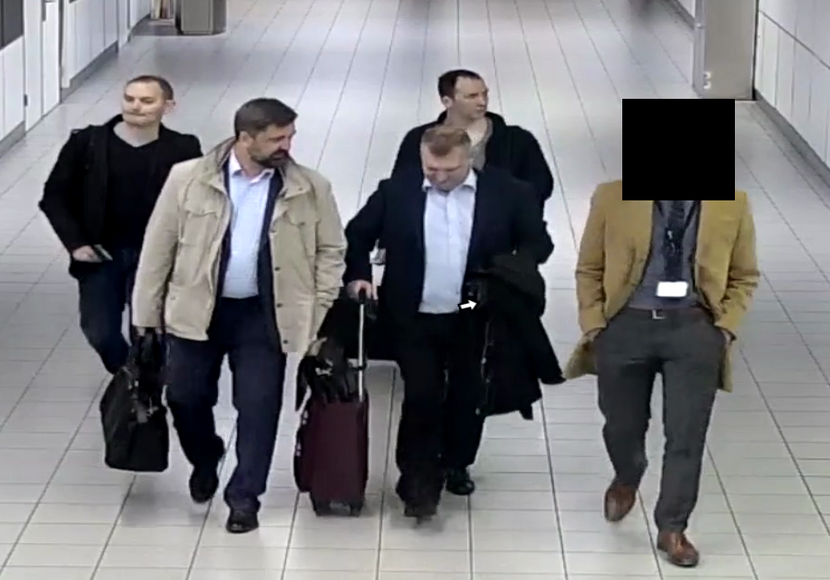
‘I have noticed that the work carried out by DISS is highly appreciated by our partners and allies, both at home and abroad.’
Temporary legislation
Speed and resilience are crucial for DISS. During her address, Defence Minister Ollongren announced that she and the Minister of the Interior and Kingdom Relations would therefore be presenting temporary legislation to the House of Representatives and the Senate. ‘This legislation is aimed at resolving the current bottlenecks and enabling both DISS and the Netherlands General Intelligence and Security Service (GISS) to keep abreast of the threats emanating from countries with offensive cyber programmes targeting the Netherlands and both our and our allies’ interests.’
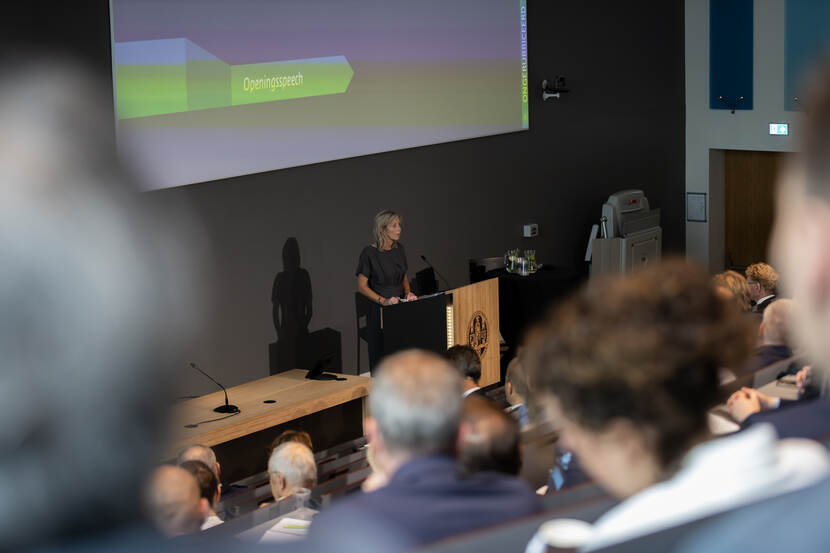
Industrial security
DISS has traditionally shared knowledge in order to help Defence contractors ward off the persistent threat of espionage. She also announced plans to expand this Defence regulation to apply to all government departments using the funds allocated under the coalition agreement for this purpose. GISS and DISS are currently working out the details of this new regulation.
